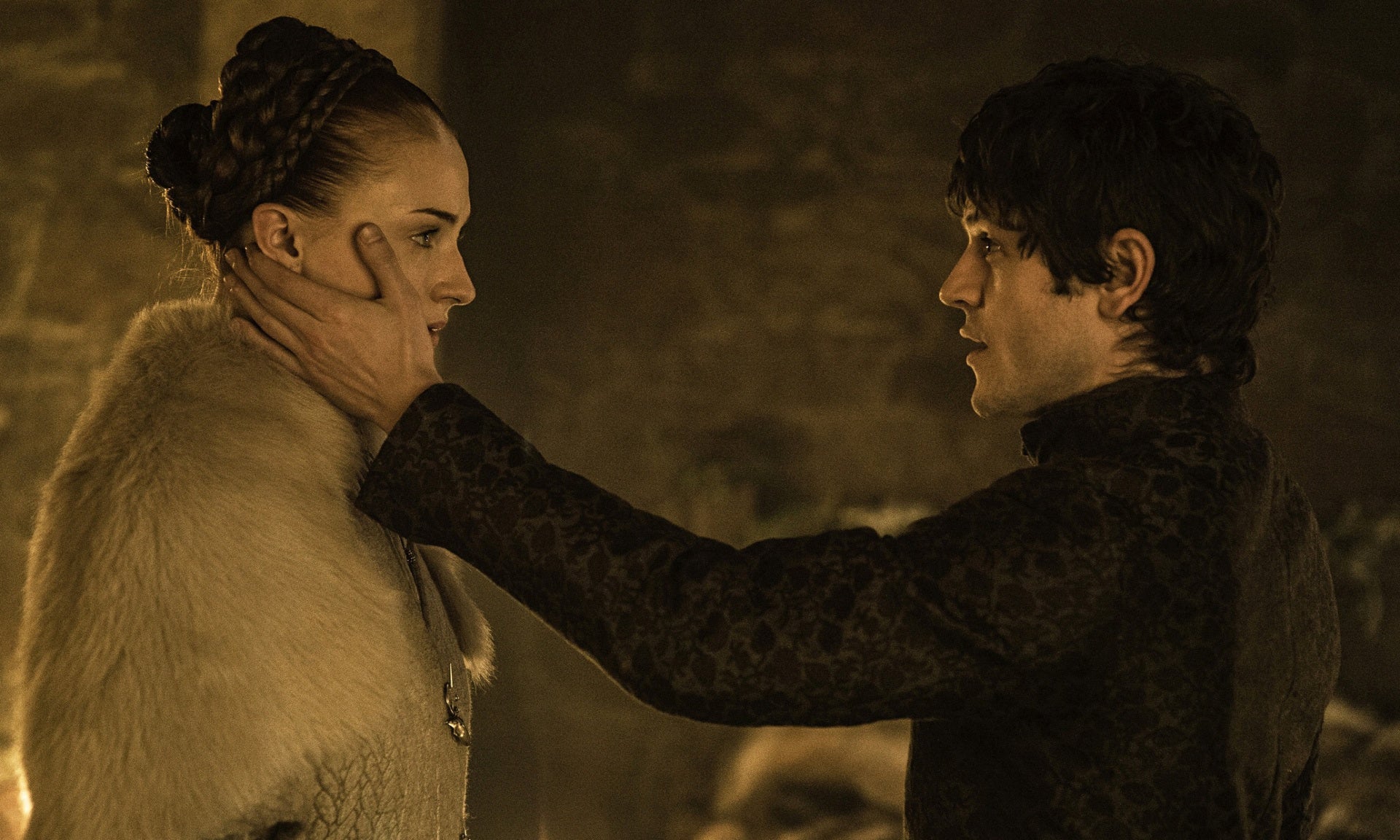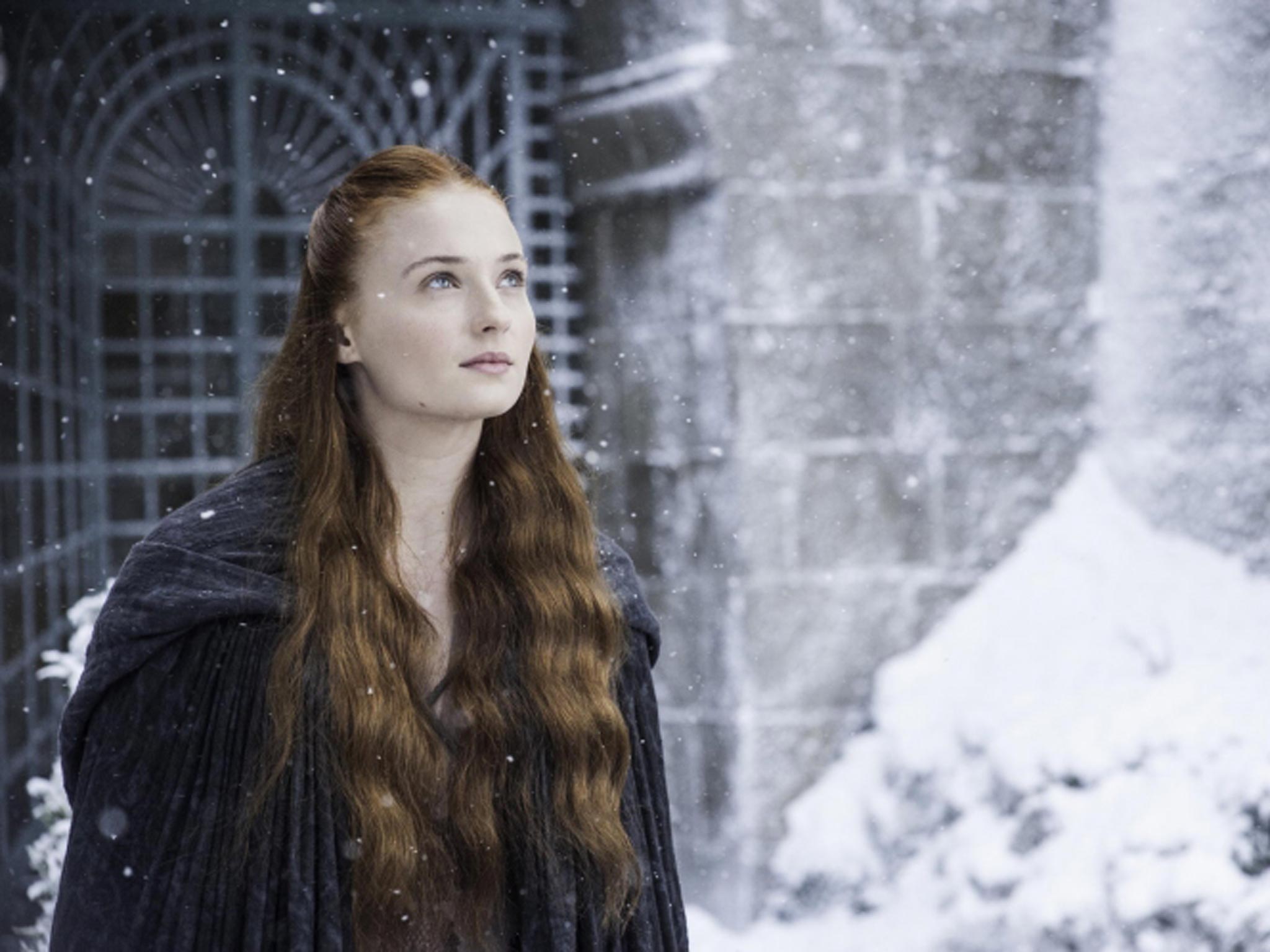Game of Thrones writer Bryan Cogman defends controversial Sansa scene
'It’s an upsetting scene, it’s a horrifying scene, it’s meant to be'

Your support helps us to tell the story
From reproductive rights to climate change to Big Tech, The Independent is on the ground when the story is developing. Whether it's investigating the financials of Elon Musk's pro-Trump PAC or producing our latest documentary, 'The A Word', which shines a light on the American women fighting for reproductive rights, we know how important it is to parse out the facts from the messaging.
At such a critical moment in US history, we need reporters on the ground. Your donation allows us to keep sending journalists to speak to both sides of the story.
The Independent is trusted by Americans across the entire political spectrum. And unlike many other quality news outlets, we choose not to lock Americans out of our reporting and analysis with paywalls. We believe quality journalism should be available to everyone, paid for by those who can afford it.
Your support makes all the difference.While Game of Thrones is renowned for courting controversy, one scene in particular last season proved particularly divisive, with various publications refusing to write about the show in the future because of it.
Said scene saw Sansa Stark raped on her wedding night by Ramsay Bolton while Theon watched on, the shot ending on the latter’s face.
Unsurprisingly, showrunners David Benioff and D.B. Weiss, writer-producer Bryan Cogman, and director Jeremy Podeswa were all criticised for including the now-infamous scene, many questioning whether it really should have made it onto the show.
Talking about the scene during on the commentary track made available with season five’s home release, Cogman reasons why they kept the scene in (via Collider).
“I think it’s important to talk about because of the response this storyline got,” Cogman says. “It’s sort of ‘damned if you do, damned if you don’t.’ If you don’t talk about it, people think you’re ashamed of it; if you do talk about it, everything you say is taken out of context.
"Basically, when we decided to combine Sansa’s storyline with another character in the books it was done with the idea that it would be hugely dramatically satisfying to have Sansa back in her occupied childhood home and navigate this Gothic horror story she’s found herself in and, of course, to be reunited with Theon – setting her on the path to reclaiming her family home and becoming a major player in the big overall story.
“That said, when we decided we were going to do that we were faced with the question: If she’s marrying Ramsay, what would happen on her wedding night? And we made the decision to not shy away from what would realistically happen on that wedding night with these two characters, and the reality of the situation, and the reality of this particular world.”
In George RR Martin’s novels, Sansa never returns to Winterfell, instead it is Jeyne Poole pretending to be Arya Stark. Many fans thought that, if Sansa was in that situation, she would turn and kill Ramsay, something Cogman doesn’t believe would happen.
“We can’t all be Arya (Maisie Williams) and, in fact, most people aren’t Arya. Most people in that situation, they have to play a longer game,” he says.
“She goes [into the marriage] without the right information about Ramsay, she gets the sense that he’s dangerous, and when he turns out to be even worse than she thought, she’s not broken by the attack, she immediately sets to getting the hell out of there and planning her next move.”

He goes on to defend ending the shot on Theon’s face: “Another argument – and I get why this criticism was levelled at us – is idea that we took Sansa’s story away from her and made it all about Theon [by cutting to his face at the end].
“I personally don’t believe that’s the case … Certainly Theon’s redemption journey is an element of the subplot. But if you really watch this scene it’s played from Sansa’s viewpoint, for the most part.
“The main reason we cut away at the end, frankly, is that this was Sophie’s first scene of this nature, and we didn’t want to show the attack. And so we cut to Theon to hear the attack. I understand why many people reacted to that, [thinking] we were making this scene about Theon and not Sansa. I’m sorry it was viewed that way. All I can say is it’s certainly not my intention when I wrote it or when we were producing it … We could have stayed on her face of the entirety of the attack, that would have been a perfectly valid choice. To me it was about being respectful to Sophie.”
Elsewhere, Cogman says the scene was in no way just for ‘shock value’: “It’s an upsetting scene, it’s a horrifying scene, it’s meant to be … [But] the accusation that our motives were [that we] just threw in a rape for shock value, I personally don’t think the scene as shot, or as written, or as acted by our wonderful actors, supports that argument.
“Nor do I think the aftermath of the scene supports that argument. Not only in these episodes, but also in future episodes. This story is not over. This is a long on-going story. Sansa has a journey ahead of her, and what happens to her in that room is a huge part of that journey, and one that we’ve thought through.”
Season five of Game of Thrones will be available on Blu-ray and DVD from 15 March, while season six will debut on HBO 24 April.
Join our commenting forum
Join thought-provoking conversations, follow other Independent readers and see their replies
Comments